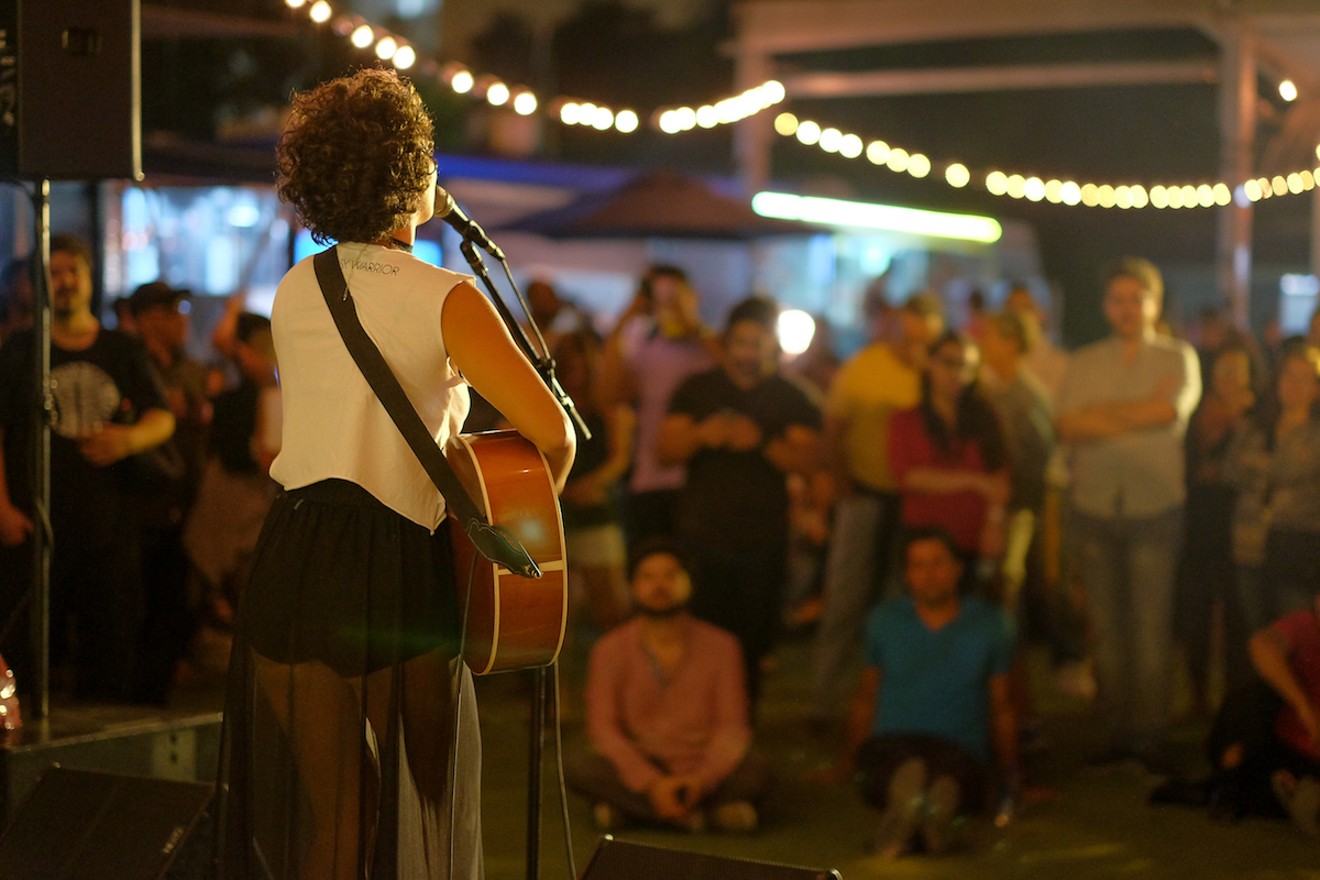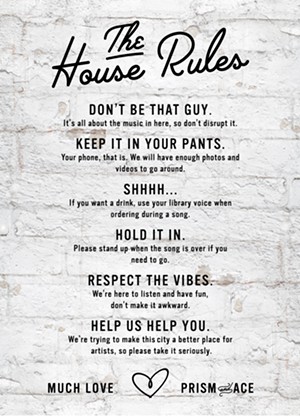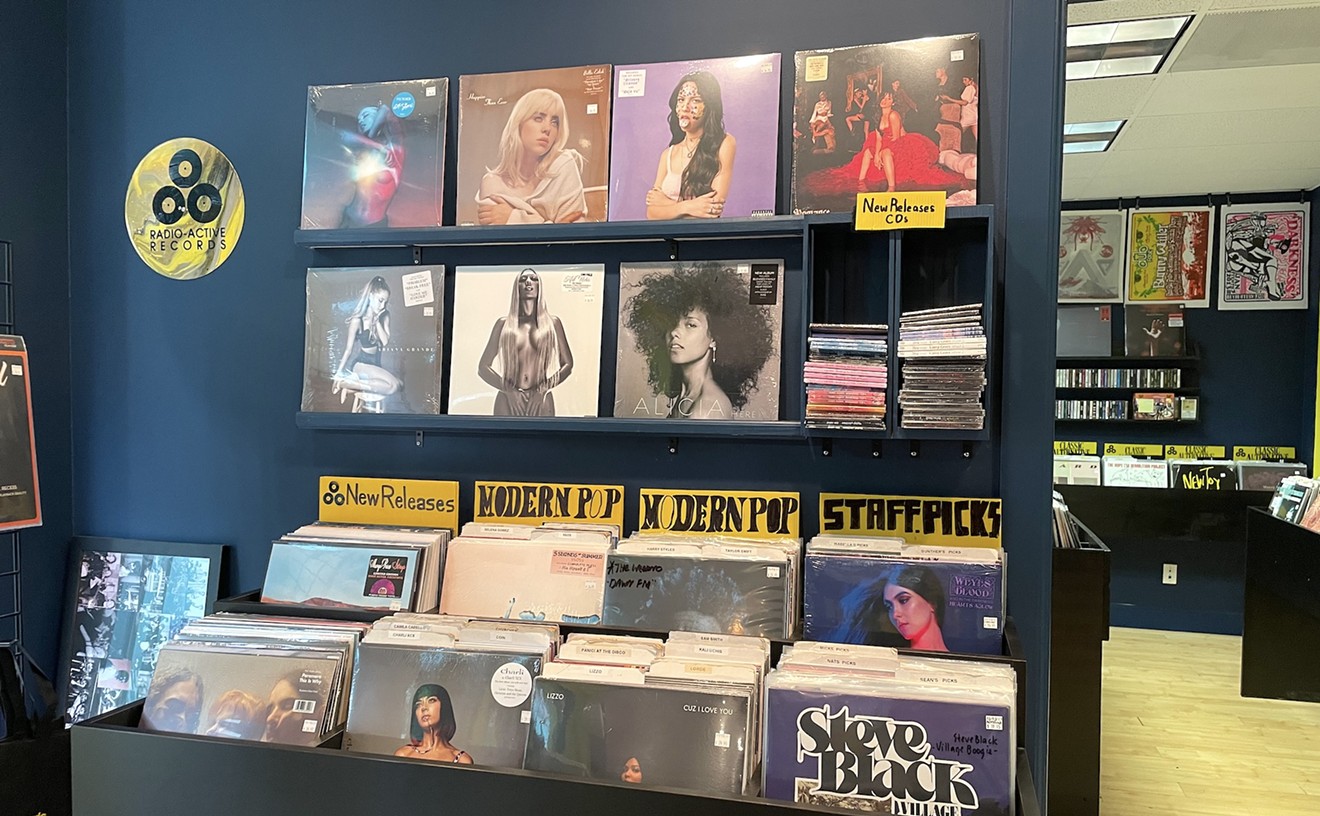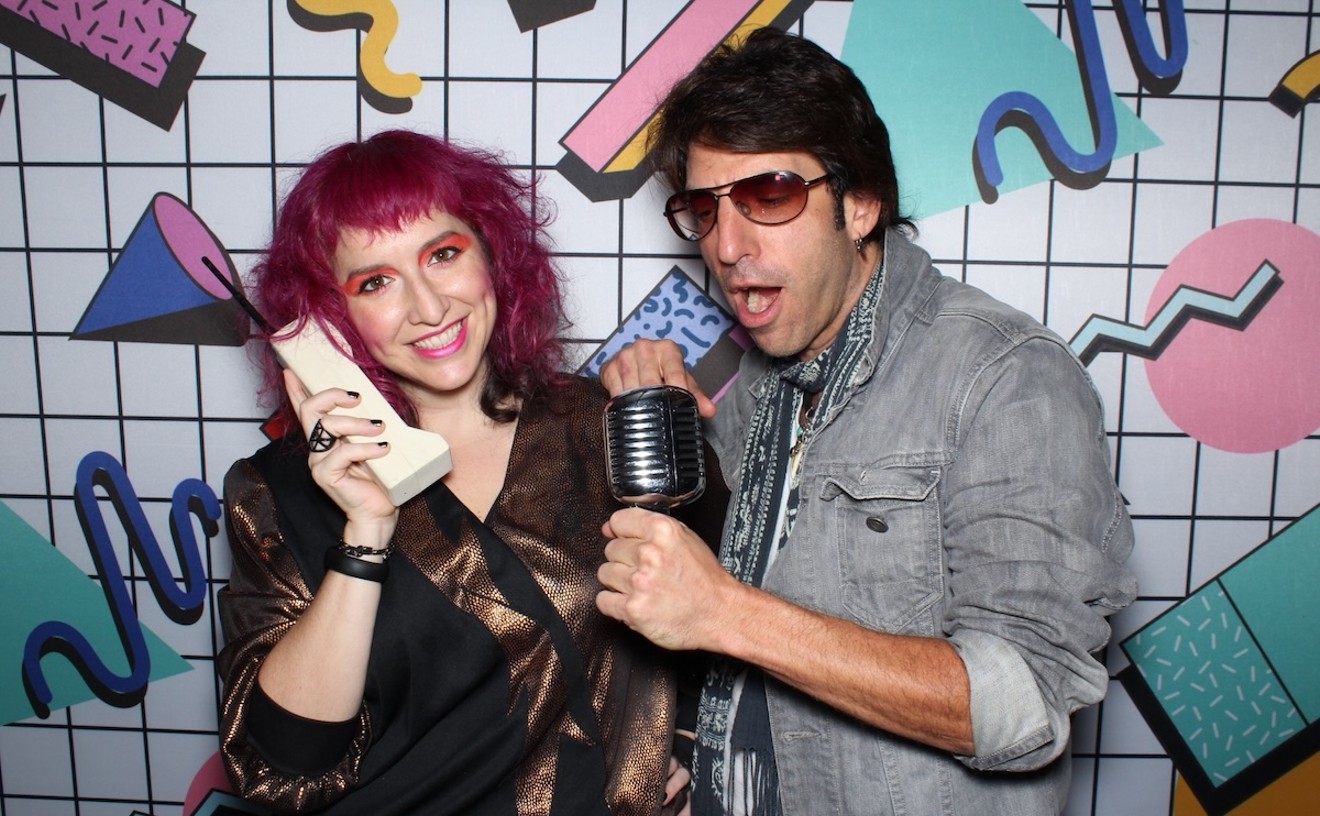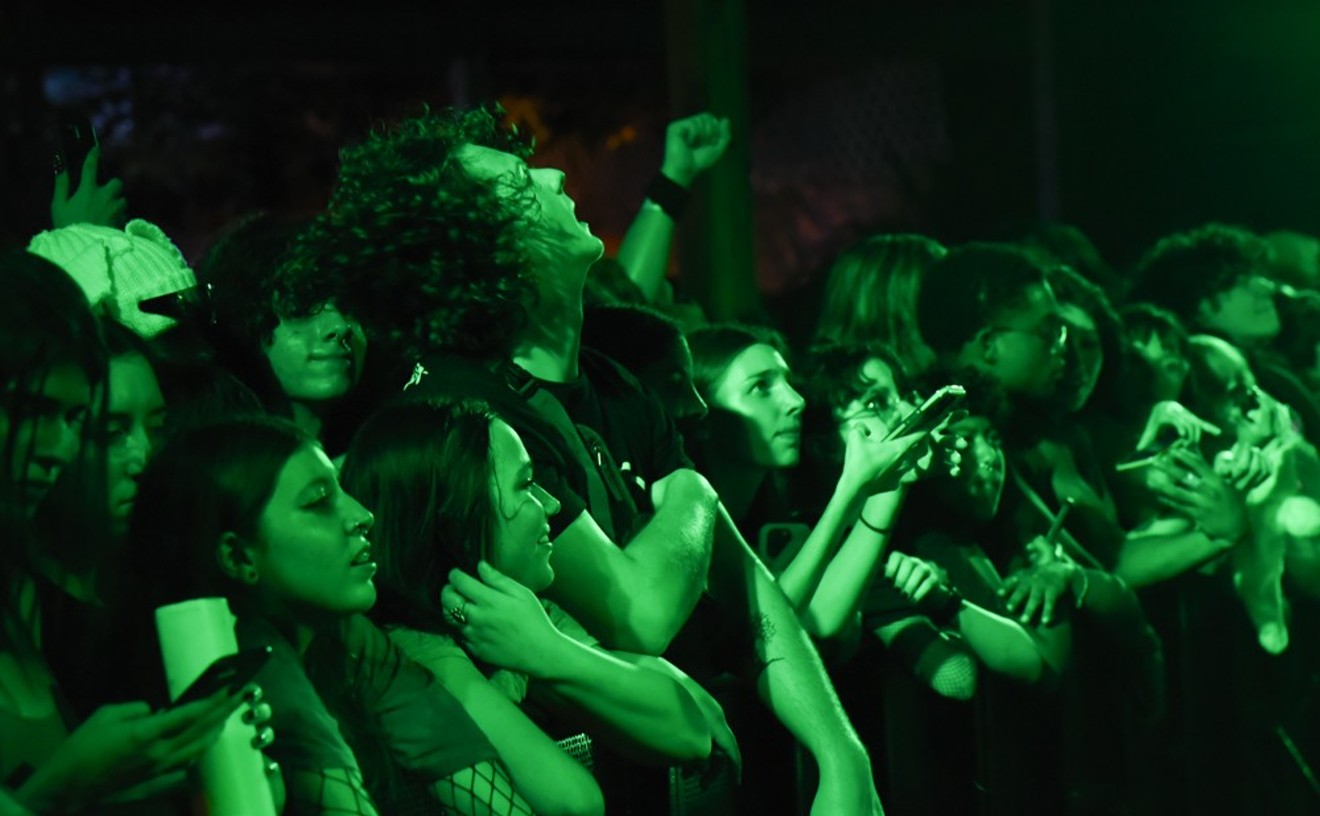Acoustic shows are rare in Miami. The DJ is king, and jazz nights are plentiful. But performances with just a musician and his or her instrument of choice are hard to come by.
Still, that's no excuse for being rude.
Last month, during the Jens Lekman show at the Ground, Miami's bad manners were on full display. Though the audience refrained from speaking too loudly during Lekman's performance, opener Peter Oren wasn't afforded the same luxury. The banter from people standing near the bar was deafening to the point that some audience members constantly shushed them, which only added to the noise.
Oren is a singer-songwriter and folk musician whose sets consist of simply his voice and guitar. The volume of his music is rarely elevated above hushed tones, making silence an absolute necessity.
It would be easy — and somewhat stereotypically racist — to blame Miami's Latin culture for the problem: Residents are boisterous fast-talkers who think being loud is the same as being heard. But, Miami, you should know ethnicity has nothing to do with it, and it's not OK to talk while someone is performing on a stage. If you must have a conversation, move to an area where you aren't disturbing anyone.
"We have to educate Miamians," says Isabella Acker, cofounder of the Prism Creative Group. "Listening to a folksy singer-songwriter is not something most Miamians are used to."
Acker, who puts on events, including many acoustic shows, across the city, says she used to feel annoyed and defeated when she noticed that locals were talking through performances. However, she decided that instead of complaining, she would do something.
Last summer, Prism launched the Listening Den, a concert series at Ace Props that centers on singer-songwriters. Admission is always free, but it comes with a big caveat: You will be asked to leave if you cannot respect the house rules, which include everything from keeping your phone out of sight to using your "library voice" if you must speak while an act is onstage.
"We don't want to sound rude, but in the Listening Den, we will tell people to shut up or go outside," Acker says.
Prism also hires someone to do "noise control," which is essentially a person who cracks down on rule-breakers and hands out a sheet explaining the house rules to people as soon as they walk in. Acker admits it's something rare, but necessary in Miami.
"We have to understand that there's a level of education that has to happen before people start to make a shift in their consciousness on how to act," she says.
Lauren "Lolo" Reskin, owner of Sweat Records, agrees with Acker that educating Miamians on proper conduct during live performances is important. (Sweat was the promoter for Lekman's performance at the Ground.)
"I feel like people that aren't there to watch the band, they should go to a bar where there is a DJ," Reskin says.
Beyond being disrespectful to performers, Reskin says, this kind of behavior can undo the progress that venues and promoters have made to put the city on musicians' radar.
"We had to work so hard in South Florida to grow our scene," she says. "It can be hard sometimes to get bands to say, 'Yes, I will go to Miami,' especially with the giant misconception that we still have by major booking agents about what is even popular down here."
Ultimately, locals owe it to the acts to show respect. "Live music can be so sacred, and these are people who are dumping their heart and soul onstage," Acker says. "When people talk, they are completely dismissing the performer's vulnerability."
[
{
"name": "Air - MediumRectangle - Inline Content - Mobile Display Size",
"component": "19274298",
"insertPoint": "2",
"requiredCountToDisplay": "2"
},{
"name": "Editor Picks",
"component": "17482312",
"insertPoint": "4",
"requiredCountToDisplay": "1"
},{
"name": "Inline Links",
"component": "18711090",
"insertPoint": "8th",
"startingPoint": 8,
"requiredCountToDisplay": "7",
"maxInsertions": 25
},{
"name": "Air - MediumRectangle - Combo - Inline Content",
"component": "17482310",
"insertPoint": "8th",
"startingPoint": 8,
"requiredCountToDisplay": "7",
"maxInsertions": 25
},{
"name": "Inline Links",
"component": "18711090",
"insertPoint": "8th",
"startingPoint": 12,
"requiredCountToDisplay": "11",
"maxInsertions": 25
},{
"name": "Air - Leaderboard Tower - Combo - Inline Content",
"component": "17482313",
"insertPoint": "8th",
"startingPoint": 12,
"requiredCountToDisplay": "11",
"maxInsertions": 25
}
]

